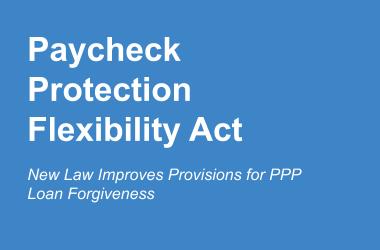What is the difference between a Non-Profit and a For Profit?
What is the difference?
A non-profit, or not-for-profit, is an organization that does not seek to earn profit for its owners. Rather, all of the money earned is used to keep the organization running and to meet its mission and goals, serving the greater good of the community. These entities, often with a focus on charitable causes, are usually exempt from paying taxes and do not flow profits through to their members. In addition, they are prohibited from paying dividends, as the goal of these entities is to put all funds toward the organization’s objectives while keeping it afloat. Any entity seeking tax-exempt status must request 501( c) (3) status from the IRS, which may only fall into certain categories such as religious, charitable, or public safety enterprises. Assets of a non-profit must be distributed to another non-profit if it is ever dissolved. Because non-profit organizations must comply with state agencies as well as federal requirements, it’s important to consider the amount of work involved in meeting these requirements before choosing to file as a non-profit organization. It’s also a good idea to consult with accounting and legal advisors before proceeding. (173 words)
Unlike a non-profit, which is exempt from taxes, for profit organizations are subject to taxation. While IRS code 501( c) (3) allows for non-profits to be excused from taxation, those organizations not registered as a 501( c)(3) are subject to taxes. For example, C corporations, often called “general for profit” corporations, are owned by shareholders and exist to create profit for those shareholders. These profits are defined as any revenue (or sales) that exceeds expenses (costs) and taxes incurred by the organization. The management of a company involved in for profit enterprises are therefore seeking to maximize those profits for its shareholders. Other for profit organizational structures include S corps and LLCs, among others. It’s important to consult with tax and legal professionals before choosing a for profit organization structure.
NEXTSTEPS | 1.16.21
Related Blog Posts
3 Accounting Terms Every Artist Should Know
3 Accounting Terms Every Artist Should Know These terms are essential for artist accounting Chart of Accounts It is important that your organization's money moves are informed and precise. In coordination with your Budget and Financial Reports, a consistent Chart of...
5 Questions to Ask Your Auditor
5 Questions to Ask Your Auditor What are the key questions to ask an independent auditor? Nonprofits are required to obtain an audit or review each year, depending on their budget size. The first step in any nonprofit audit or review is contacting an...
New York City Fiscal Sponsors
New York City Fiscal SponsorsList of Fiscal Sponsors in New York City Organizations that act as fiscal sponsors provide a vital service in the cultivation of new projects and entities. Any project or entity can be sponsored by a nonprofit fiscal sponsor if both...
Checklist for Processing 1099’s and W2s
Checklist for Processing 1099’s and W2’sEnd of Year Payroll Tax Forms: W2, 1099 Some of the most important payroll tax forms -- W2 and 1099 forms -- must be mailed out to your employees and contractors shortly after the calendar year ends. Any contractors who were...
5 Ways That You Can Benefit From Fiscal Sponsorship
5 Ways That You Can Benefit From Fiscal SponsorshipFiscal Sponsorship Has Both Financial and Administrative Benefits Fiscal Sponsorship has many financial and administrative benefits. Fiscal sponsorship refers to the practice of non-profit organizations...
Paycheck Protection Flexibility Act Adds Key Features to Existing Payroll Protection Program (PPP)
Paycheck Protection Flexibility Act Adds Key Features to Existing Payroll Protection Program (PPP) New Law Improves Provisions for PPP Loan Forgiveness PPP Applications Accepted until June 30 The Paycheck Protection Program (PPP), provides short term loans to small...
Pentacle’s nextSteps is supported, in part, by public funds from the National Endowment for the Arts, the New York State Council on the Arts with the support of Governor Andrew M. Cuomo and the New York State Legislature, and the New York City Department of Cultural Affairs in partnership with the City Council. Pentacle receives private support for nextSteps from the Booth Ferris Foundation, the Howard Gilman Foundation, the Rockefeller Brothers Fund, and the New York Community Trust.







